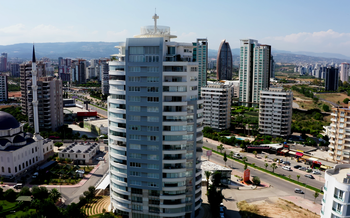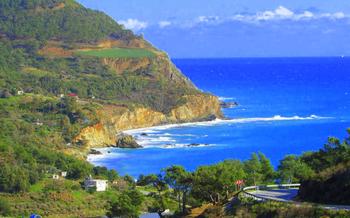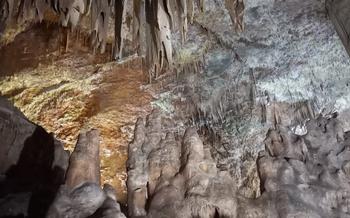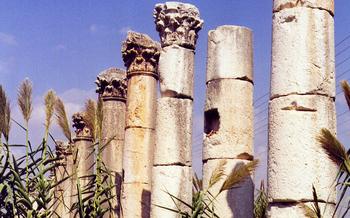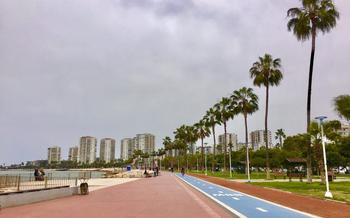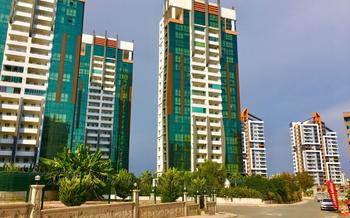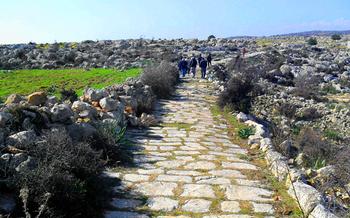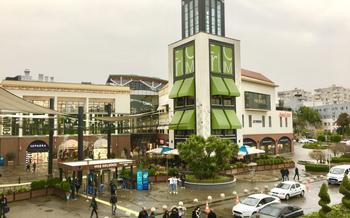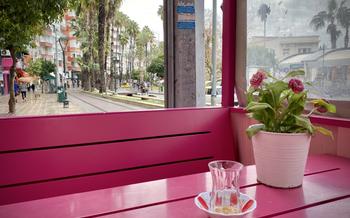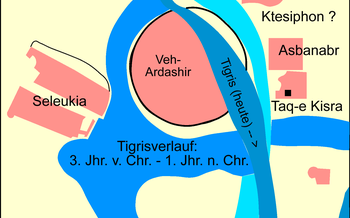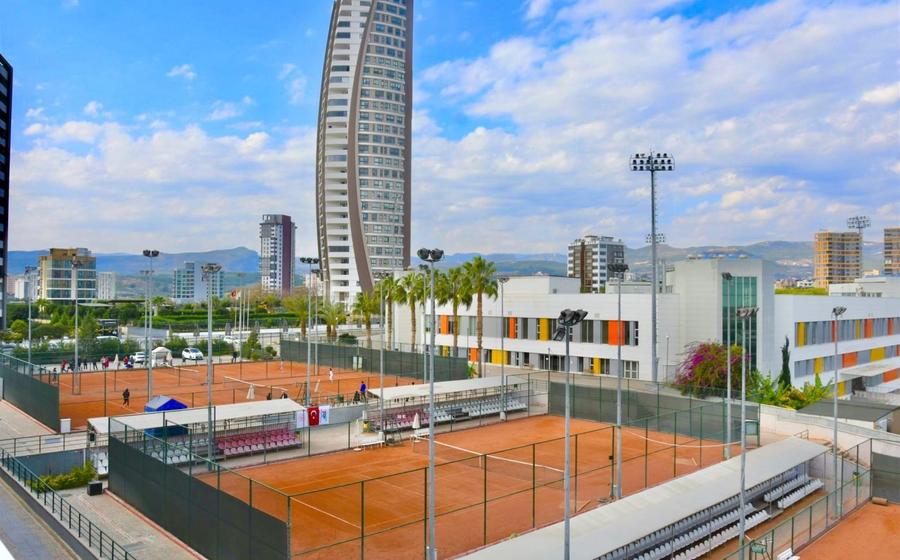
Merdivenli Kuyu
- Historical Significance
- Architectural Wonders
- Water Engineering Marvel
- Cultural Symbolism
- Location and Getting There
- Hours of Operation and Admission
- Guided Tours
- Best Time to Visit
- Things to See and Do Nearby
- Safety and Precautions
- Accessibility
- Photography Tips
- Food and Drinks
- Souvenirs and Shopping
- Insider Tip: Unveiling Hidden Gems and Unique Experiences
Historical Significance
The Merdivenli Kuyu, meaning "Staircase Well," is an awe-inspiring ancient water cistern that stands as a testament to the ingenuity and engineering prowess of its builders. Its history dates back to the Roman period, likely constructed during the 2nd or 3rd century AD. According to local lore, the well was built by a group of slaves who were tasked with digging a well to provide water to the nearby city of Soli.
Builders and ancient users of the Merdivenli Kuyu left behind intriguing anecdotes that offer glimpses into their lives. It is said that the slaves who constructed the well were given their freedom upon its completion, a testament to the significance and value placed on this remarkable water system.
The surrounding historical context of the Merdivenli Kuyu is rich and diverse. The site was once part of the ancient city of Soli, a major port and trading hub that flourished during the Roman Empire. Soli was renowned for its impressive architecture, including temples, theaters, and public baths, many of which can still be seen in the vicinity of the well.
Architectural Wonders
The Merdivenli Kuyu is an architectural marvel that showcases the ingenuity and engineering prowess of ancient civilizations. Its unique features and construction techniques have captured the attention of architects and historians alike.
The well is constructed in a cylindrical shape, with a diameter of approximately 10 meters and a depth of over 30 meters. It is made of carefully cut and stacked limestone blocks, forming a sturdy and durable structure that has withstood the test of time.
One of the most striking features of the Merdivenli Kuyu is its spiral staircase, which winds its way down the interior of the well. The staircase consists of 148 steps, each precisely carved and arranged to provide a safe and efficient passageway for drawing water.
The well's construction is a testament to the advanced engineering skills of the ancient builders. They employed a technique known as "dry stone construction," which involves stacking stones without the use of mortar or cement. This technique requires meticulous craftsmanship and a deep understanding of the properties of stone and its load-bearing capabilities.
The Merdivenli Kuyu's design is not only functional but also aesthetically pleasing. The spiral staircase, with its rhythmic curves and interplay of light and shadow, creates a visually captivating effect. The well's cylindrical shape and the harmonious arrangement of the stone blocks lend it an air of elegance and simplicity.
In comparison to other ancient water systems, the Merdivenli Kuyu stands out for its exceptional preservation. While many similar structures have been damaged or destroyed over time, the Merdivenli Kuyu has remained largely intact, providing valuable insights into the water management practices of ancient civilizations.
Water Engineering Marvel
The Merdivenli Kuyu is not just a remarkable architectural achievement but also a testament to the advanced water engineering knowledge of its builders. The hydraulic system employed in its construction is a marvel of engineering, demonstrating an understanding of water flow and distribution that was ahead of its time.
The well's design ensured a reliable and consistent water supply, even during periods of drought or heavy rainfall. It utilized a series of interconnected channels and chambers to collect, store, and distribute water efficiently. Excess water from the well overflowed into a nearby river, preventing flooding and maintaining a balanced water table.
The precise alignment of the well's chambers and the careful calculations of water flow rates demonstrate a level of engineering expertise that was truly remarkable for its time. The Merdivenli Kuyu stands as a testament to the ingenuity and resourcefulness of the ancient builders who created it, leaving a legacy of water engineering innovation that continues to inspire modern engineers and architects.
Cultural Symbolism
The Merdivenli Kuyu holds a profound significance in the cultural fabric of Mersin. It is deeply intertwined with local folklore and traditions, serving as a symbol of resilience, ingenuity, and community spirit. According to local legends, the well was a gathering spot for villagers during challenging times, where they would come together to seek solace and strength.
The well is also closely associated with religious beliefs and rituals. It is said that the water from the well possesses healing properties and is often used in traditional ceremonies and rituals. During religious festivals, the well becomes a focal point of celebrations, with people gathering around it to pray and make offerings.
Beyond its religious and folkloric importance, the Merdivenli Kuyu also embodies the spirit of cooperation and unity within the community. Its construction required the concerted efforts of the entire village, with everyone contributing their skills and labor. This sense of community involvement and pride is still evident today, as the well continues to be a cherished landmark and a source of inspiration for the local people.
Location and Getting There
The Merdivenli Kuyu is situated in the city of Mersin, Turkey. It is conveniently located within the city limits, making it easily accessible for both locals and tourists.
To reach the Merdivenli Kuyu, you can either take public transportation or drive your own vehicle. If using public transportation, take the tram to the Yenişehir stop and walk for about 10 minutes to reach the site.
For those driving, the exact GPS coordinates are 3803954, 361469Once you arrive in Mersin, follow the signs for the city center and then look for the signs for the Merdivenli Kuyu. There is ample parking available near the site.
No matter which mode of transportation you choose, getting to the Merdivenli Kuyu is a breeze. Its convenient location ensures that you can easily visit this ancient marvel and immerse yourself in its rich history and cultural significance.
Hours of Operation and Admission
The Merdivenli Kuyu is open to the public seven days a week. Visiting hours are from 8:00 AM to 6:00 PM during the summer months (April to September) and from 9:00 AM to 5:00 PM during the winter months (October to March).
Admission to the Merdivenli Kuyu is free of charge. Visitors are welcome to explore the site at their own pace or join a guided tour (if available). No advance reservations are required.
Please note that the site may be closed on certain public holidays or for special events. It is advisable to check with the local tourism office or a reliable online source before planning your visit.
Guided Tours
The Merdivenli Kuyu is a popular tourist destination, and guided tours are available to enhance your visit. English-speaking guides are available, providing insightful commentary and explanations about the history, architecture, and significance of the site.
Having a guide can greatly enrich your experience. They can point out details that you might miss on your own and provide historical context to bring the site to life. They can also answer your questions and help you understand the cultural and religious significance of the Merdivenli Kuyu.
Guided tours typically last for about an hour and cover the main features of the site, including the cistern, the surrounding buildings, and the historical context. The cost of a guided tour varies, but it is generally affordable and well worth the investment.
To book a guided tour, you can either contact a local tour operator or make a reservation online. It is recommended to book in advance, especially during the peak tourist season, to avoid disappointment.
Best Time to Visit
Timing your visit to the Merdivenli Kuyu can greatly enhance your experience. The ideal season to visit is during the spring (April-May) or fall (September-October) when the weather is pleasant and mild, making it comfortable to explore the site and its surroundings.
Best Time of Day: Visit during the early morning or late afternoon to avoid the harsh midday sun and capture the most stunning photographs with beautiful lighting conditions.
Weather Considerations: Mersin's summers can be hot and humid, while winters are relatively mild with occasional rainfall. Check the weather forecast before your visit to ensure you're prepared for the conditions.
Special Events and Festivals: Mersin hosts various events and festivals throughout the year that coincide with the Merdivenli Kuyu. These events offer a unique opportunity to immerse yourself in the local culture and traditions.
Things to See and Do Nearby
The Merdivenli Kuyu is not the only attraction worth exploring in the area. Mersin is a treasure trove of historical sites, natural wonders, and cultural experiences. Here are some suggestions to make the most of your visit:
-
Tarsus: Discover the birthplace of the Apostle Paul and explore the ancient city's well-preserved ruins, including the Roman amphitheater, colonnaded streets, and churches.
-
Soli-Pompeiopolis: Located just 15 kilometers from Mersin, this ancient city boasts impressive ruins, including a theater, agora, and necropolis.
-
Heaven and Hell Caves: Embark on a spelunking adventure in these two interconnected caves, renowned for their breathtaking stalactites and stalagmites.
-
Mersin Museum: Immerse yourself in the region's rich history and culture at this museum, showcasing artifacts from ancient civilizations that once thrived in the area.
-
Mersin Marina: Take a leisurely stroll along the picturesque marina, lined with charming cafes, restaurants, and shops, offering panoramic views of the Mediterranean Sea.
-
Dolphin Island: Escape to this tranquil island, a natural habitat for dolphins, and enjoy a boat tour to observe these playful creatures in their natural environment.
-
Tekke Hamam: Experience the traditional Turkish bath culture at this beautifully preserved historical bathhouse, offering a unique blend of relaxation and cultural immersion.
-
Mersin Cuisine: Indulge in the city's culinary delights, savoring fresh seafood, delectable kebabs, and traditional Turkish sweets, reflecting the region's rich cultural heritage.
Safety and Precautions
Safety is paramount when visiting any historical site, and the Merdivenli Kuyu is no exception. The site is generally safe for visitors, but it's important to be aware of potential hazards and take necessary precautions.
-
Terrain: The uneven terrain around the well can be slippery, especially after rain. Wear comfortable shoes with good traction to avoid accidents.
-
Height: The well is quite deep and has steep sides. Keep a safe distance from the edge to prevent falls.
-
Weather Conditions: Mersin's weather can be hot and humid during the summer, so bring water and wear loose, breathable clothing. In winter, the weather can be cold and rainy, so dress accordingly.
-
Personal Safety: Although the area is generally safe, it's always a good idea to be aware of your surroundings. Keep valuables out of sight and avoid walking alone at night.
-
Stay Hydrated: The well is located in an open area with little shade, so make sure to stay hydrated, especially during the summer.
-
Respect the Site: Remember that the Merdivenli Kuyu is a historical monument. Please respect the site by refraining from climbing on the walls or leaving any litter.
Accessibility
The Merdivenli Kuyu is committed to ensuring that all visitors have a comfortable and enjoyable experience, regardless of their abilities.
Facilities for Visitors with Disabilities: - Wheelchair Accessibility: The site features accessible pathways and ramps, allowing wheelchair users to navigate the area with ease. - Designated Parking: Reserved parking spaces are available close to the entrance for visitors with disabilities. - Accessible Restrooms: Well-equipped restrooms with grab bars and wider stalls are available for added convenience. - Braille Signage: Informative signs are equipped with Braille translations for visually impaired visitors.
Alternative Options: - Virtual Tours: For those unable to visit in person, virtual tours provide an immersive online experience, showcasing the Merdivenli Kuyu's history and architecture. - Audio Guides: Audio guides with detailed descriptions are available for rent, offering an alternative way to learn about the site's significance.
Tips for a Comfortable and Inclusive Visit: - Advance Notice: Contact the site in advance to inform them of any specific accessibility needs, and they will be happy to assist. - Accessible Tours: Guided tours can be arranged with sign language interpreters or audio descriptions upon request. - Companion Assistance: Visitors with disabilities are welcome to bring a companion or caregiver for assistance.
The Merdivenli Kuyu is dedicated to creating an inclusive environment where everyone can appreciate its historical and cultural significance.
Photography Tips
The Merdivenli Kuyu offers a wealth of photographic opportunities. Capture its grandeur from afar or immerse yourself in its depths for close-up shots. The play of light and shadow through its many levels creates striking compositions. For the best results, visit during the golden hours of sunrise or sunset, when the warm hues illuminate the architecture beautifully. Consider bringing a tripod to stabilize your camera for long exposures, especially if you're aiming for shots with flowing water or blurred motion. Experiment with different angles and perspectives to showcase the unique features of the kuyu. Don't be afraid to get low for dramatic shots or climb the steps for elevated vantage points. Remember, the goal is to capture the essence of this historical marvel, so let your creativity flow and enjoy the process.
Food and Drinks
After exploring the wonders of Merdivenli Kuyu, you may find yourself in need of refreshment. Fortunately, there are several options available nearby to satisfy your hunger and thirst. For a quick bite, you can head to the local cafes or restaurants, which offer a variety of Turkish delicacies and international cuisine. Be sure to try some of the local specialties, such as Mersin Tantuni, which is a delicious wrap filled with grilled meat, tomatoes, and onions. If you prefer a more leisurely dining experience, you can opt for one of the many seafood restaurants along the coast, where you can savor the freshest catches of the day while enjoying the stunning views of the Mediterranean Sea. For those who prefer a picnic lunch, there are several scenic spots near the site where you can spread out a blanket and enjoy a meal surrounded by nature. Don't forget to pack some fresh fruits, cheeses, and bread from the local market to complete your picnic experience.
Souvenirs and Shopping
At the Merdivenli Kuyu, immerse yourself in the local culture by exploring the nearby shops and markets for unique souvenirs. Discover handwoven carpets, intricate copperware, and delicate ceramics, each showcasing the region's rich artistic heritage. Don't miss the opportunity to bargain and negotiate prices, a cherished tradition in Turkish marketplaces. You might just uncover hidden treasures and secure exceptional deals, adding to the memorable experience of your visit.
Insider Tip: Unveiling Hidden Gems and Unique Experiences
As you explore the wonders of Merdivenli Kuyu, venture beyond the main site to discover hidden gems that offer a truly immersive experience. For those seeking a serene escape, follow the winding paths that lead to a secluded garden nestled amidst lush greenery. Relax amidst vibrant flowers, the gentle sound of trickling water, and the calming atmosphere that envelops this hidden oasis.
For history enthusiasts, delve into the nearby Museum of Ancient Water Systems to uncover the rich heritage of water engineering in the region. Admire a collection of artifacts, models, and interactive displays that shed light on the ingenuity of ancient civilizations. Learn about the challenges they faced, the innovations they developed, and the impact these systems had on their daily lives.
If you're an adventure seeker, embark on a scenic hike through the surrounding hills that offer breathtaking panoramic views of the countryside. Discover hidden caves, ancient ruins, and natural wonders along the way. The fresh air, stunning scenery, and sense of exploration will leave you feeling invigorated and connected to the natural beauty of the region.
To truly immerse yourself in the local culture, visit the bustling markets in the nearby town where you can haggle for unique handicrafts, savor the flavors of traditional Turkish cuisine, and sip on refreshing beverages. Interact with the friendly locals, learn about their customs, and gain a deeper appreciation for the rich tapestry of Turkish life.
Remember, the true essence of travel lies in embracing the unexpected and venturing off the beaten path. As you explore Merdivenli Kuyu and its surroundings, keep an open mind, engage with the locals, and allow yourself to be surprised by the hidden gems and unique experiences that await you.
